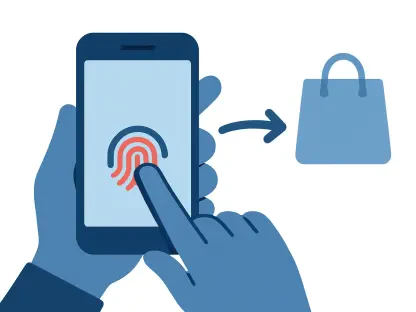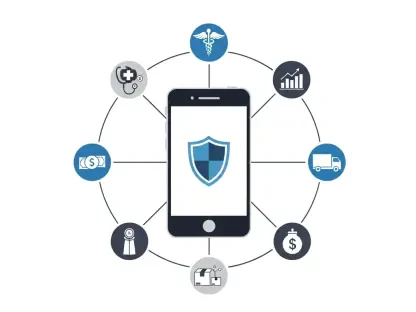In the vibrant markets of Abidjan, where small traders hustle daily to make ends meet, a quiet revolution is underway that’s changing the way Ivorians handle their finances, offering hope in a landscape long dominated by exclusionary banking systems. Wave, a fintech startup, has emerged as a beacon of hope in Côte d’Ivoire, a West African nation where traditional banking systems have long excluded millions due to prohibitive costs and limited access. By introducing a zero-fee mobile banking model, Wave is not merely offering a digital payment solution but fundamentally transforming lives, particularly for small business owners and the unbanked. This innovative approach tackles deep-rooted financial exclusion by prioritizing affordability and ease of use, empowering individuals who have been sidelined by conventional financial institutions. As this fintech disruptor gains traction, it’s reshaping the economic landscape, providing a lifeline to those who once struggled with high fees and unreliable services, and setting a new standard for what financial inclusion can look like in the region.
Breaking Down Barriers of Traditional Banking
The financial system in Côte d’Ivoire has historically been a fortress with high walls, accessible only to a privileged few while leaving the majority on the outside looking in. Traditional banks, with their sparse network of branches and ATMs, especially in rural areas, have failed to serve the needs of most Ivorians. The costs associated with maintaining a bank account are often unaffordable for low-income individuals, and World Bank data reveals a grim reality: in 2014, a mere 15 percent of the population held bank accounts, compared to 24 percent using mobile money. This gap has forced small traders, rural residents, and other underbanked groups to rely on a cash-based economy, which comes with significant risks like theft and loss, not to mention the sheer inconvenience of handling physical money in daily transactions. The inaccessibility of banking infrastructure has created a persistent cycle of exclusion, where financial tools remain a distant dream for many who need them most to stabilize and grow their livelihoods.
Beyond the scarcity of banking facilities, the inefficiencies and mistrust surrounding legacy mobile money services have compounded the challenges faced by Ivorians. Providers that once seemed like a promising alternative to cash have often disappointed with exorbitant transaction fees, sometimes reaching up to 10 percent, which erode the earnings of small vendors and everyday users. Stories from market traders in Abidjan, such as Musbaudeen Habibat, highlight the frustration of dealing with transaction errors and lost funds, with little to no support from established operators. Unreliable networks and poor customer service further deepen the skepticism, as users like young shoe vendor Busoyri Fadel endure long queues and failed transactions just to access their money. This landscape of high costs and low reliability has left a void that desperately needed filling, as the majority of Ivorians yearn for a financial solution that respects their limited resources and meets their practical needs without adding to their burdens.
Wave’s Innovative Approach to Mobile Money
Amid the struggles of traditional financial systems, Wave has entered the scene in Côte d’Ivoire with a groundbreaking model that challenges the status quo and redefines accessibility. Launched in Senegal in 2018 and expanding to Côte d’Ivoire in 2021, this fintech startup, founded by American entrepreneurs Drew Durbin and Lincoln Quirk, offers a zero-fee structure for deposits and withdrawals at agent locations, alongside a nominal 1 percent fee for transfers. This pricing strategy directly addresses the core issue of affordability that has plagued other mobile money services, making financial transactions feasible for even the smallest of earners. With a user-friendly smartphone app featuring intuitive QR code scanning, Wave eliminates the complexity that often deters first-time digital users, ensuring that everyone from urban youth to rural traders can navigate the platform with ease. This focus on simplicity and cost-effectiveness marks a significant departure from the fee-heavy, cumbersome systems of the past.
The rapid adoption of Wave across Côte d’Ivoire and Senegal speaks volumes about its relevance and impact on the ground. Millions of users have embraced the platform, drawn by its extensive network of local agents who facilitate cash transactions in communities where banking infrastructure is nonexistent. This accessibility has proven transformative for groups previously excluded from financial systems, such as market traders and women entrepreneurs, who now have a reliable tool to manage their money. Wave’s success is not just in its numbers but in the trust it has built among Ivorians who value its transparent pricing and dependable service. By prioritizing the needs of the unbanked and underbanked, the startup has tapped into a deep hunger for financial tools that empower rather than exploit, setting itself apart as a catalyst for change in a region where such innovation was long overdue. The platform’s growth reflects a broader demand for solutions that align with the real-world challenges faced by everyday people.
Driving Economic Growth Through Digital Tools
Wave’s influence extends far beyond simplifying transactions; it plays a pivotal role in fostering economic empowerment among Ivorians by integrating them into a burgeoning digital economy. Small business owners, who once grappled with the inefficiencies of cash-based systems, now use Wave to handle payments seamlessly, pay bills with a quick scan, and maintain better control over their finances. This shift reduces the risks associated with carrying cash and allows microbusinesses to focus on growth rather than logistical hurdles. Moreover, the platform’s low-cost structure enables traders to reinvest savings from avoided fees into their operations, creating a ripple effect of resilience and expansion in local markets. For many, this access to digital financial tools represents a stepping stone to stability, offering a way to build a buffer against unexpected expenses and invest in opportunities that were previously out of reach due to financial constraints.
Another profound impact of Wave lies in its contribution to narrowing financial gender gaps, a critical issue in Côte d’Ivoire where women often face greater barriers to economic participation. By providing an accessible platform for savings and credit, Wave empowers female entrepreneurs to manage household finances and grow small enterprises without the burden of high transaction costs. Industry insights, such as those from the Global System for Mobile Communications Association’s latest reports, underscore the scale of mobile money’s transformative potential across Africa, with transactions surpassing US$1 trillion in 2024. Wave’s model is a key driver in this trend, enabling Ivorians to join a cashless economy that fosters inclusion and opportunity. This digital shift not only enhances individual livelihoods but also strengthens community economies, as more people gain the means to participate in formal financial systems and contribute to broader economic progress.
Navigating the Roadblocks to Universal Access
Despite Wave’s remarkable strides, the path to comprehensive financial inclusion in Côte d’Ivoire is fraught with obstacles that cannot be ignored. A significant barrier is the limited access to smartphones, particularly in rural areas where connectivity and device ownership remain low. This digital divide excludes a substantial portion of the population from benefiting from Wave’s innovations, even as urban users thrive on the platform. Additionally, digital literacy poses a challenge for older demographics and those unfamiliar with technology, who may struggle to adopt mobile money solutions without adequate training or support. These gaps highlight the need for complementary efforts to ensure that the benefits of fintech reach every corner of society, rather than being confined to tech-savvy or urban communities where infrastructure and education levels are more conducive to adoption.
Further complicating Wave’s mission are systemic issues such as regulatory complexities and interoperability challenges that hinder seamless expansion. The ability to send money across different networks or national borders remains a sticking point, limiting the platform’s utility for users who rely on cross-border transactions. Fraud prevention also demands constant vigilance, as digital platforms can attract malicious actors seeking to exploit vulnerabilities. Moreover, the lack of harmonized fintech laws across African countries creates a patchwork of regulations that can slow innovation and scalability. While Wave has pioneered a model of affordability and trust, addressing these broader hurdles requires collaboration with policymakers, educators, and other stakeholders to build an ecosystem where digital financial tools can flourish without leaving anyone behind. The journey to true inclusion demands persistence and a holistic approach to tackle both technological and structural barriers.
Paving the Way for a More Inclusive Future
Reflecting on Wave’s journey in Côte d’Ivoire, it’s evident that this fintech startup has carved a new path for financial inclusion by dismantling the barriers of cost and complexity that defined traditional systems. Its zero-fee model and user-centric design responded directly to the frustrations of Ivorians who had been let down by high fees and unreliable services from banks and legacy mobile money providers. The trust and adoption Wave garnered from millions showcased a profound shift, as small traders and unbanked individuals found a reliable partner in managing their finances. This transformation underscored the power of innovation tailored to real human needs, proving that affordability could be the key to unlocking economic participation for the masses.
Looking ahead, the lessons from Wave’s impact point to actionable steps for sustaining and expanding financial inclusion. Investments in digital infrastructure, particularly in rural areas, must be prioritized to close the smartphone access gap. Educational initiatives to boost digital literacy can further ensure that all demographics, including the elderly, feel confident using mobile money tools. Policymakers should also focus on creating unified regulatory frameworks that support interoperability and fraud prevention, enabling fintech solutions to scale across borders. Wave’s model offers a blueprint for other African nations, suggesting that the future of financial access lies in partnerships between innovators, governments, and communities to build systems that truly serve everyone. These steps can cement the gains made and drive toward a vision where no Ivorian is left behind in the digital economy.









